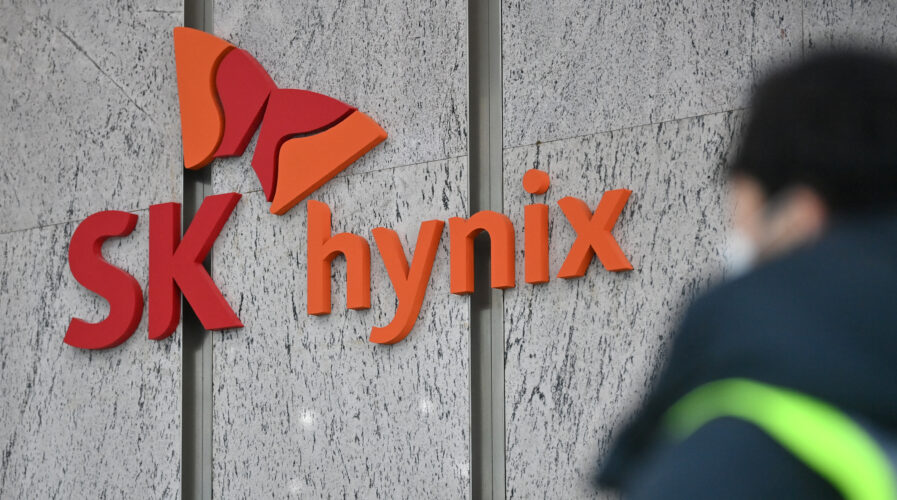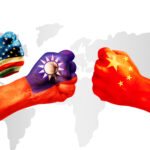
The US allows SK Hynix a year of access to chip equipment for factories in China . (Photo by Jung Yeon-je / AFP)
The US allows SK Hynix a year of access to chip equipment for factories in China
- SK Hynix Inc said it has been temporarily exempted from the US’ recently-imposed export control measures.
- The world’s second-largest memory chip maker is allowed to continue normal production activities in China for one year.
- TSMC on the other hand has secured a one-year license to continue ordering American chip making equipment for its expansion in China.
Last week, the Joe Biden administration announced a set of export controls aimed at slowing Beijing’s technological and military advances, an act seen to further intensify rivalry between the two nations. The set of sweeping measures also includes cutting China off from certain semiconductors made anywhere in the world with US equipment. Now it seems that Washington is scrambling to tackle unintended consequences of its new curbs.
Analysts have reckon that the export controls could in fact hobble China’s chip industry and in turn, inadvertently harm the semiconductor supply chain. Shortly after the US made the announcement, South Korean memory chipmaker SK Hynix Inc said it has gotten authorization from the US to receive goods for its chip production facilities in China — without additional licensing imposed by the new rules.
The authorization had apparently come hours before the new restriction took effect. According to a statement by SK Hynix, the US Department of Commerce allowed the chipmaker and its business partners to “engage in activities necessary to maintain current production of integrated circuits in China for one year without further licensing requirements.”
Basically, the company’s discussions with the US government “led to an approval to supply equipment and items needed for development and production of DRAM semiconductors in Chinese facilities without additional licensing requirements,” it said.
For context, the curbs, among other things, demand companies receive a license for equipment exports to Chinese firms that make advanced chips, such as DRAM chips that are 18 nanometers and below, NAND flash chips with 128 layers or more, and logic chips 14nm and below.
Because SK hynix operates multiple plants in China, including one in the eastern city of Wuxi, the authorization allows the company to smoothly bring in chip equipment to China to produce semiconductors as scheduled and to supply them to customers without disruptions, it said. Apparently, even the largest chipmaker in the world, Taiwan Semiconductor Manufacturing Co (TSMC) has secured a one-year license to continue ordering American chip making equipment for its expansion in China.
A Nikkei report indicated that the government assured TSMC that it will be able to ship the equipment to a manufacturing facility in the Chinese city of Nanjing. To recall, the Biden administration had planned to spare foreign companies operating in China such as SK Hynix and Samsung Electronics Co from the brunt of new restrictions. Unfortunately, the rules published on Friday did not exempt such firms. As of midnight Tuesday this week, vendors too could not support, service and send non-US supplies to the China-based factories without licenses if US companies or people are involved.
Apparently, even the world’s largest memory chip maker Samsung Electronics Co, is said to have been given the same temporary exemption, sources told Reuters. While SK Hynix, Samsung or even TSMC has made any official statement, the South Korean foreign ministry confirmed the exemptions given to SK hynix and Samsung Electronics, saying the ministry has been closely discussing the issue with the US.
“Together with related government bodies, the Ministry of Foreign Affairs has been in close consultation with the U.S. so as to be able to minimize the impact of the latest US export control measures on the local industry,” a ministry official said.
READ MORE
- Ethical AI: The renewed importance of safeguarding data and customer privacy in Generative AI applications
- How Japan balances AI-driven opportunities with cybersecurity needs
- Deploying SASE: Benchmarking your approach
- Insurance everywhere all at once: the digital transformation of the APAC insurance industry
- Google parent Alphabet eyes HubSpot: A potential acquisition shaping the future of CRM


